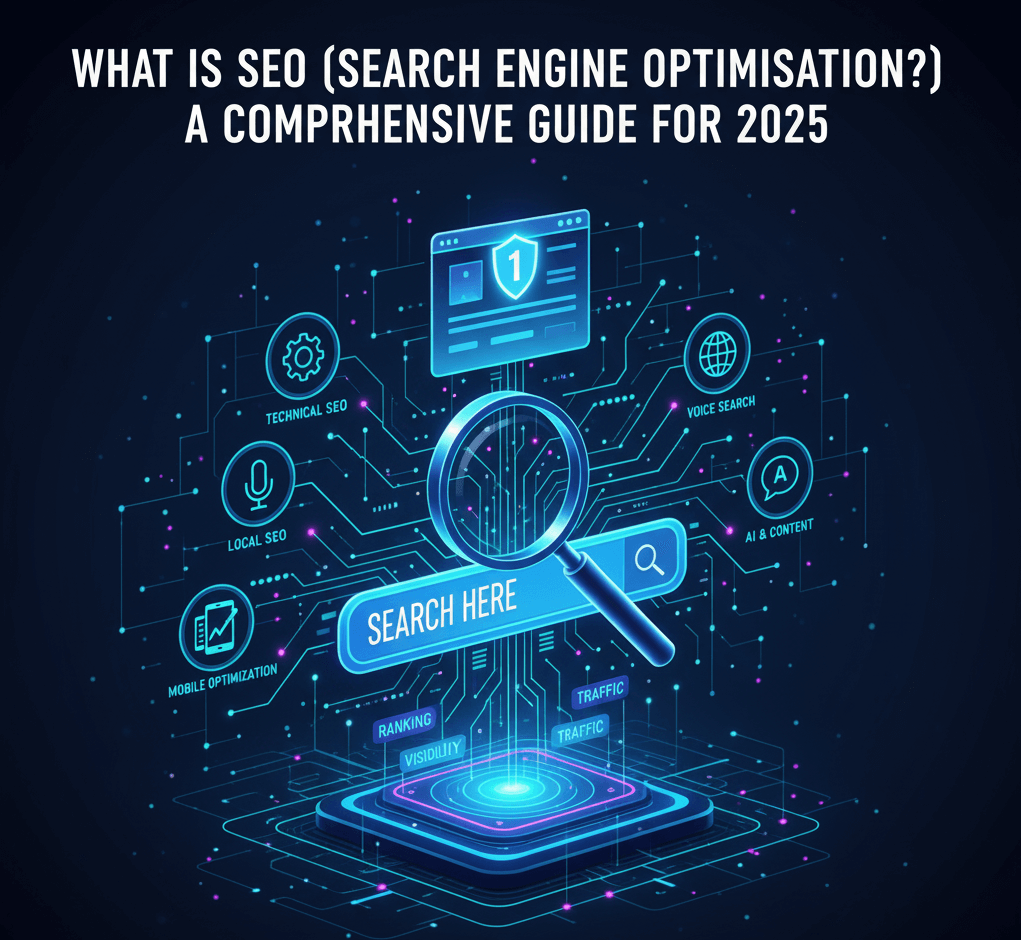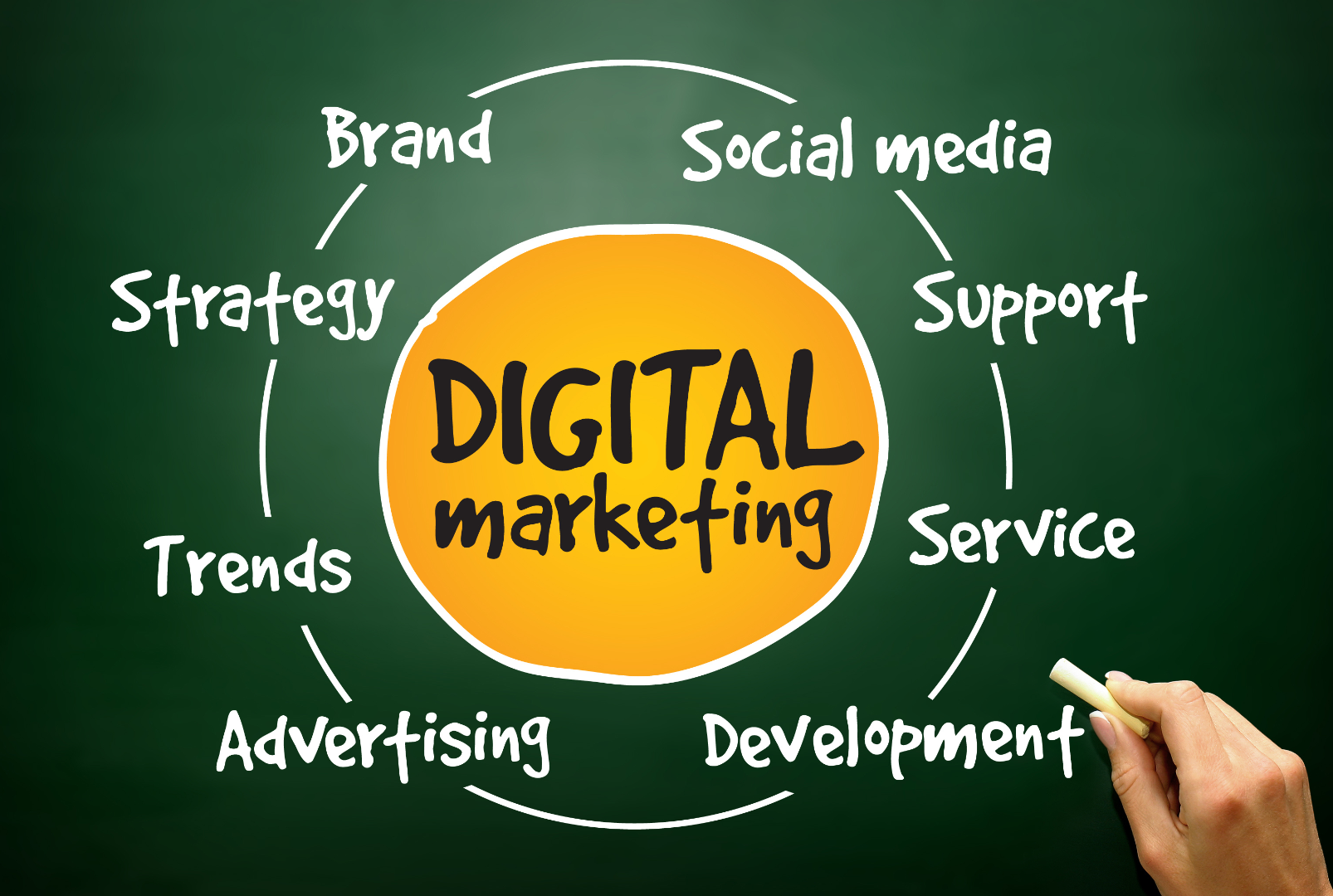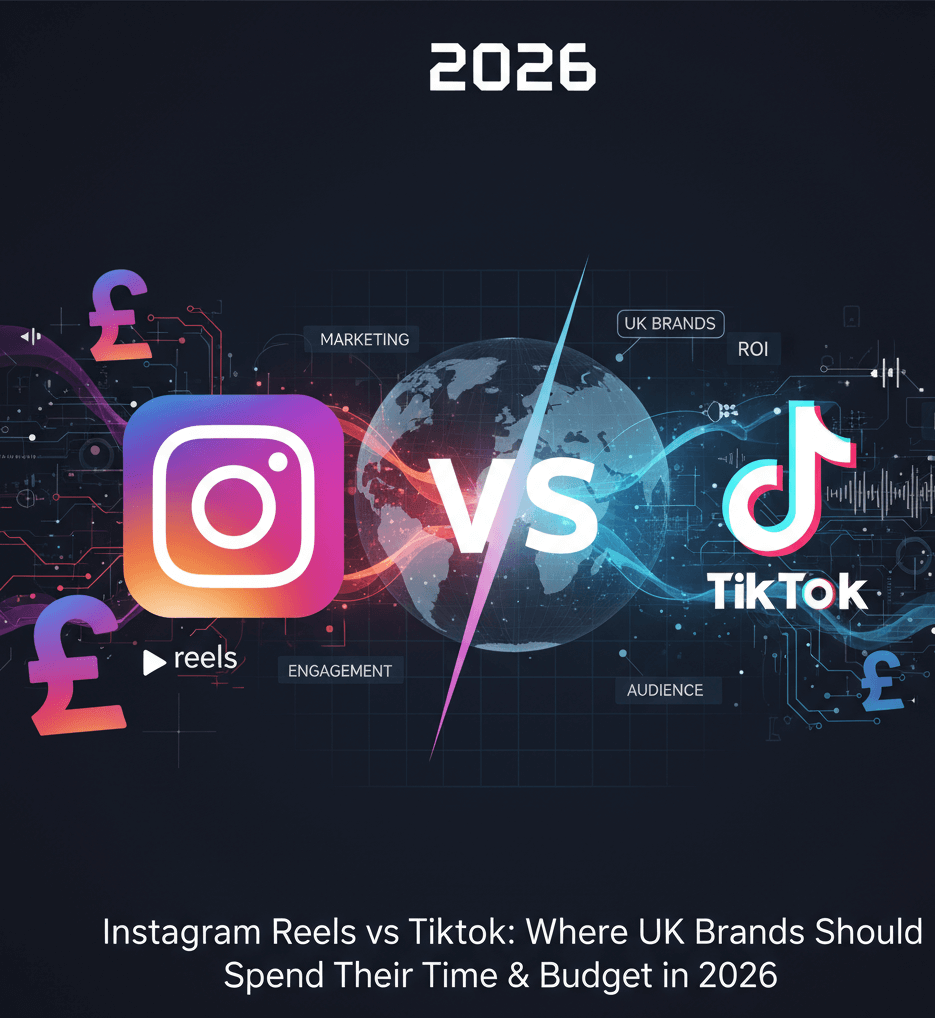Did you know that businesses investing in SEO see an average return of £22 for every £1 spent, according to recent industry analyses?
Key Areas We Will Cover
- The core definition and evolution of SEO
- Why it remains essential for businesses and websites in the digital age
- Major components, including on-page, off-page, and technical SEO
- How search engines work and the role of SEO in rankings
- Practical steps to develop an effective SEO strategy
- Popular tools to support your optimisation efforts
- Measuring success through analytics and key metrics
- Best practices for sustainable results
- Common challenges and how to overcome them
- Emerging trends shaping SEO in 2025 and beyond
In an increasingly competitive online world, SEO, or search engine optimisation, serves as the foundation for driving organic traffic and enhancing visibility on platforms like Google. This guide explores its fundamentals, strategies, and future outlook, providing actionable insights to help businesses and individuals improve their search rankings. Whether you are new to digital marketing or seeking to refine your approach, you will discover how to leverage SEO for long-term growth and success.
The Definition of SEO (Search Engine Optimisation)
Search engine optimisation, commonly known as SEO, is the process of enhancing a website’s visibility in organic search results on engines like Google and Bing. It involves optimising content, structure, and technical elements to align with search algorithms, ultimately aiming to attract more relevant visitors without relying on paid ads.
Unlike paid search, SEO focuses on earning rankings through quality and relevance, making it a cost-effective, long-term strategy. As search engines evolve, SEO adapts to incorporate user intent, semantic understanding, and AI-driven insights.
Why Is SEO Important in 2025?
With billions of daily searches worldwide, effective SEO ensures your site appears prominently for relevant queries, driving targeted traffic that converts into leads or sales. It builds credibility, as top rankings signal trustworthiness to users, and supports overall digital marketing by complementing social media and content efforts.
In 2025, ignoring SEO means missing out on opportunities amid rising competition and algorithm changes, potentially leading to decreased visibility and revenue loss.
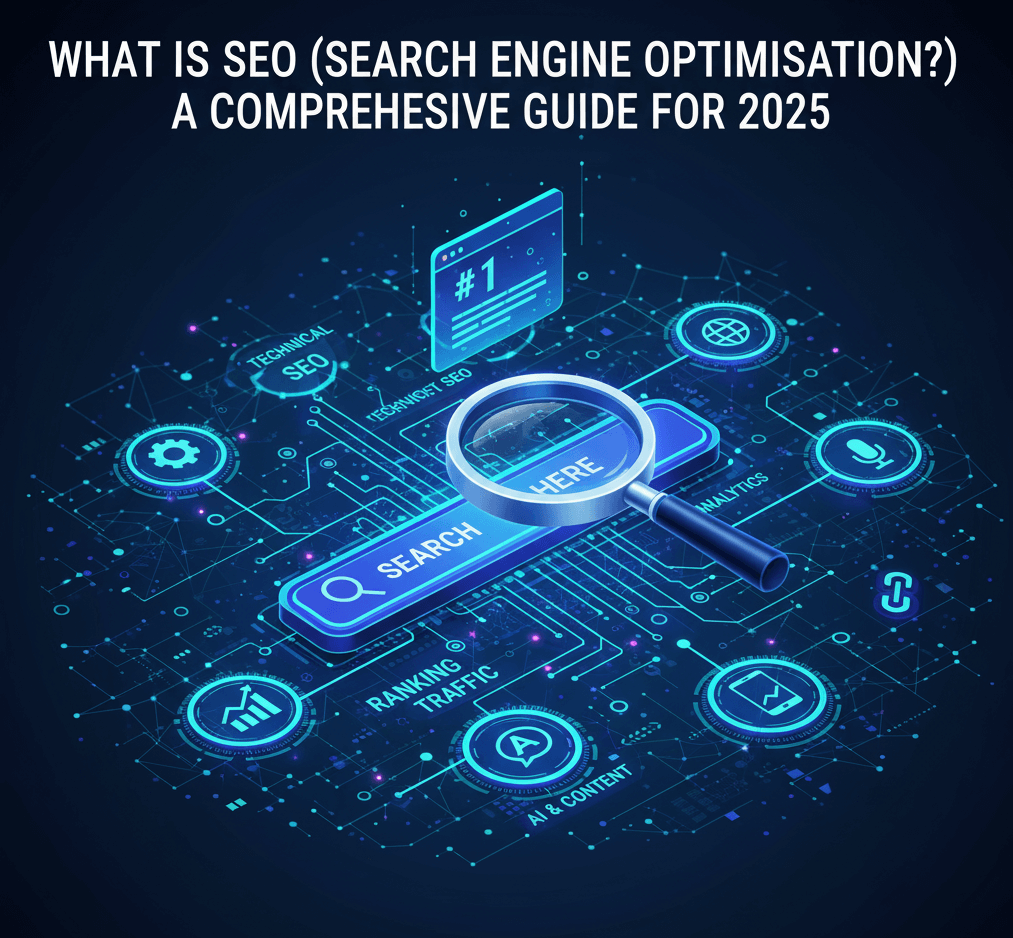
Key Components of SEO
On-Page SEO
This involves optimising elements directly on your site, such as content, headings, and meta tags. Focus on incorporating keywords naturally, creating high-quality content that addresses user needs, and ensuring fast loading times for better engagement.
Off-Page SEO
Building authority through external factors like backlinks from reputable sites, social shares, and online reviews. It enhances your site’s trustworthiness in the eyes of search engines.
Technical SEO
The backbone of optimisation, covering site architecture, mobile-friendliness, secure connections (HTTPS), and structured data to help search engines crawl and index your pages efficiently.
How Search Engines Work and SEO’s Role
Search engines crawl the web, index content, and rank pages based on over 200 factors, including relevance, authority, and user experience. SEO aligns your site with these factors by providing clear signals through optimised content and technical setup, improving chances of higher placements.
Algorithms like Google’s prioritise E-E-A-T (Experience, Expertise, Authoritativeness, Trustworthiness), rewarding sites that demonstrate genuine value.
Steps to Develop an Effective SEO Strategy
- Conduct keyword research to identify search terms your audience uses.
- Analyse competitors to understand gaps and opportunities.
- Optimise on-page elements, including titles, descriptions, and content.
- Build quality backlinks through outreach and partnerships.
- Implement technical fixes using audits.
- Create and promote valuable content regularly.
- Monitor performance and adjust based on data.
Popular Tools for SEO
Streamline your efforts with:
- Google Search Console: For monitoring site performance and issues.
- Google Analytics: To track traffic and user behaviour.
- Ahrefs or SEMrush: For keyword research and competitor analysis.
- Yoast SEO: A plugin for WordPress sites to guide on-page optimisations.
These tools provide insights to refine strategies and measure impact.
Analytics and Measuring SEO Success
Key metrics include organic traffic, keyword rankings, bounce rates, and conversion rates. Use tools like Google Analytics to track progress, identifying what drives results and areas for improvement to ensure ROI.
Best Practices for Sustainable SEO Results
Prioritise user-focused content, mobile optimisation, and semantic keywords. Avoid black-hat tactics like keyword stuffing, focusing instead on ethical practices that build long-term authority. Regularly update content to keep it fresh and relevant.
Common Challenges and Solutions
Challenges include algorithm updates, competition, and slow results. Overcome them by staying informed through resources like Search Engine Land, diversifying strategies, and emphasising quality over quantity.
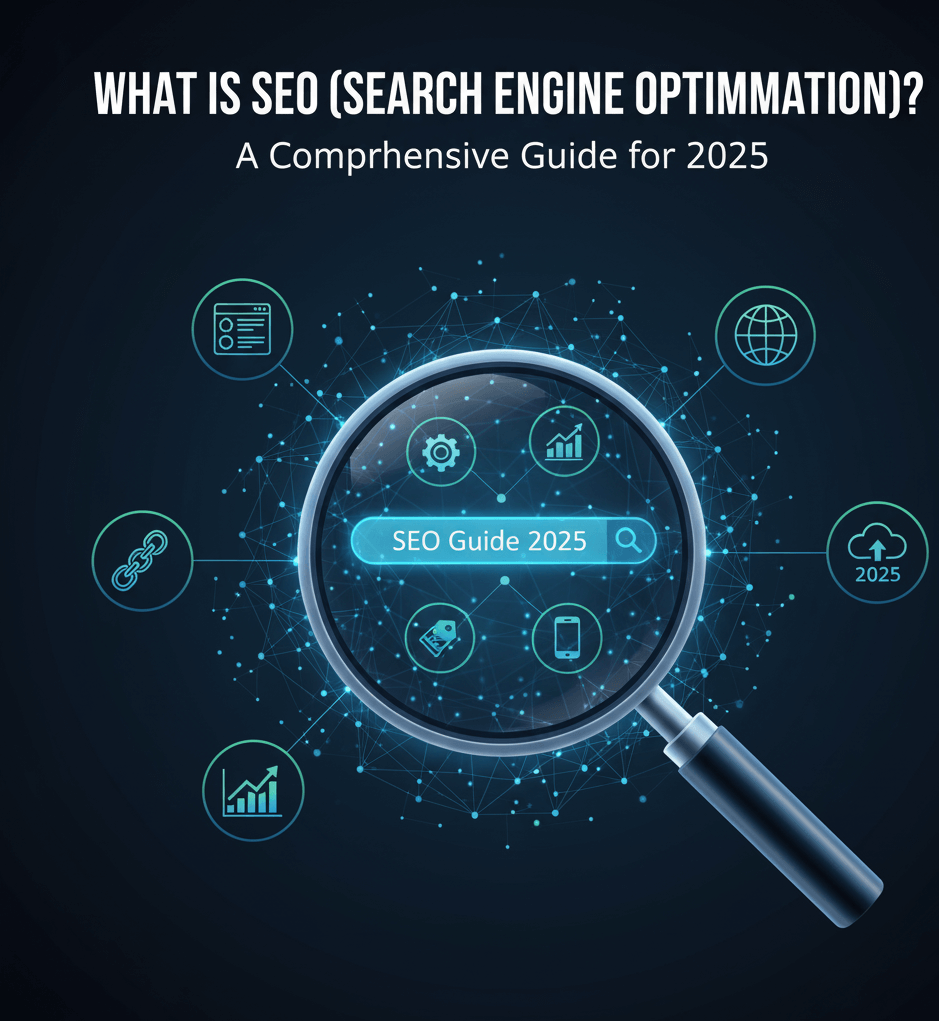
Emerging Trends in SEO for 2025
AI integration for content creation and personalisation, voice search optimisation, and generative engine optimisation (GEO) will dominate. Focus on zero-click searches, local SEO, and enhanced structured data to adapt to evolving user behaviours and algorithm shifts.
Conclusion
SEO is a dynamic practice that combines technical expertise with creative content to boost online visibility and drive meaningful traffic. By mastering its components and staying ahead of trends, you can achieve sustainable growth in a digital-first world.
Ready to Elevate Your SEO Strategy?
Discover how Be More Social UK can optimise your online presence with tailored SEO services. From audits to implementation, our team delivers results that matter. Visit our site today or get in touch for a free consultation.
Frequently Asked Questions About SEO (Search Engine Optimisation)
Navigating SEO can spark numerous questions, particularly for beginners. Below, we tackle some of the most common to offer clarity and guidance.
SEO focuses on organic rankings through optimisation, while PPC involves paid ads for immediate visibility. Both complement each other in a comprehensive strategy.
Typically, 3-6 months for noticeable improvements, depending on competition and site age, as search engines need time to index changes.
Key skills include keyword research, content writing, data analysis, and technical knowledge. Tools and ongoing learning are essential.
Yes, it levels the playing field by targeting niche keywords and local searches, enabling cost-effective growth without large budgets.
Review quarterly, but monitor monthly for algorithm changes and performance shifts to stay competitive

